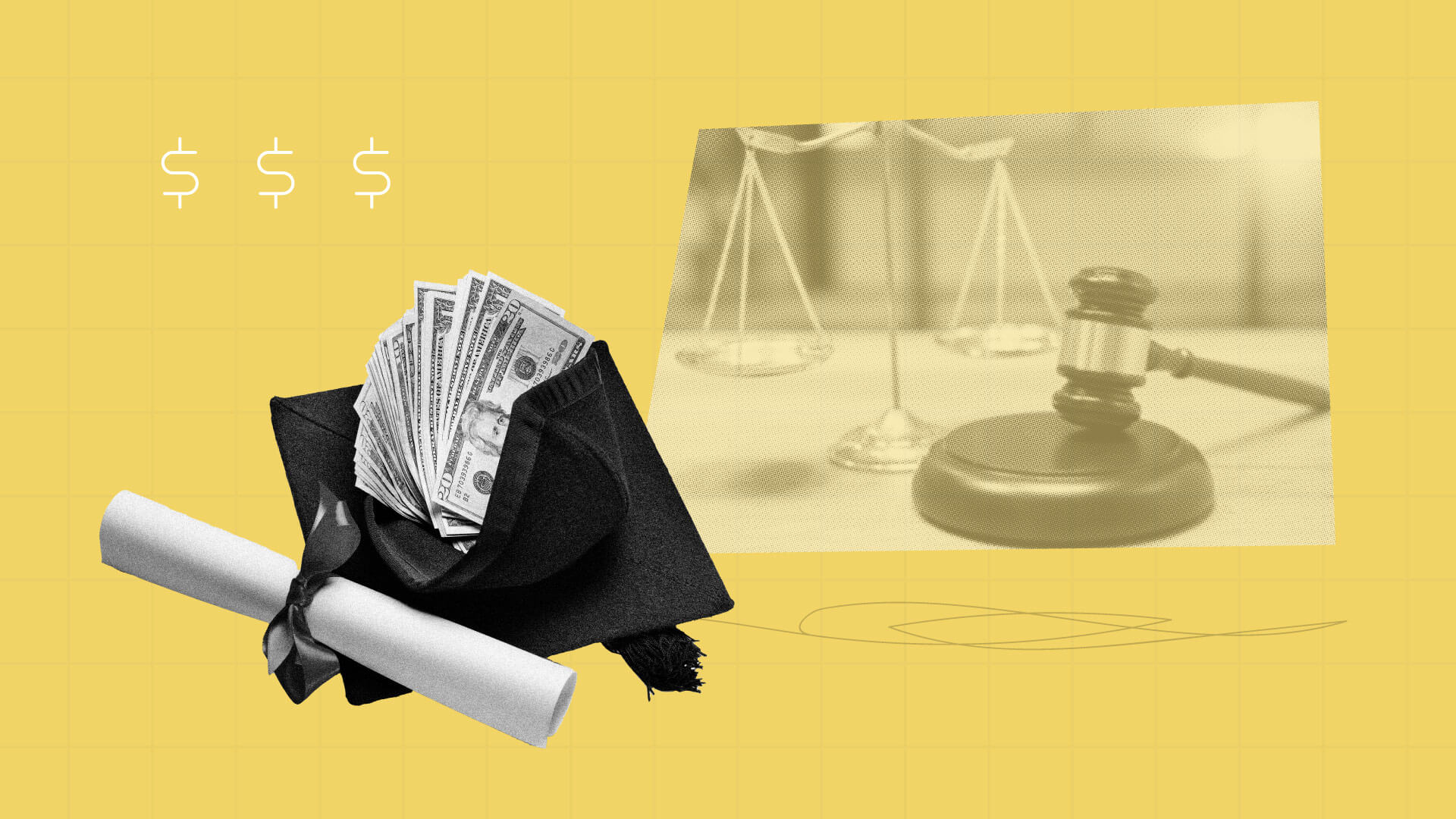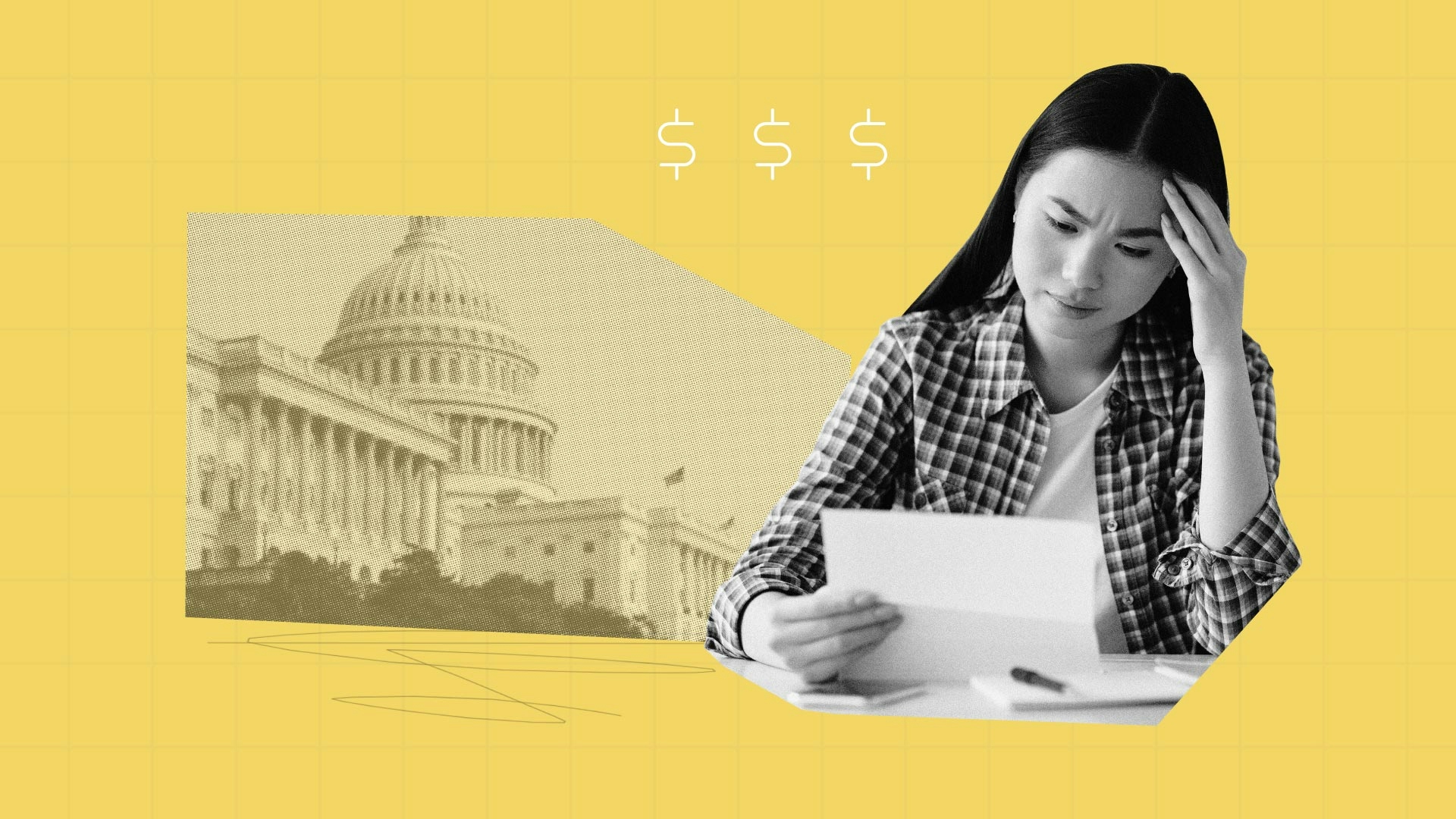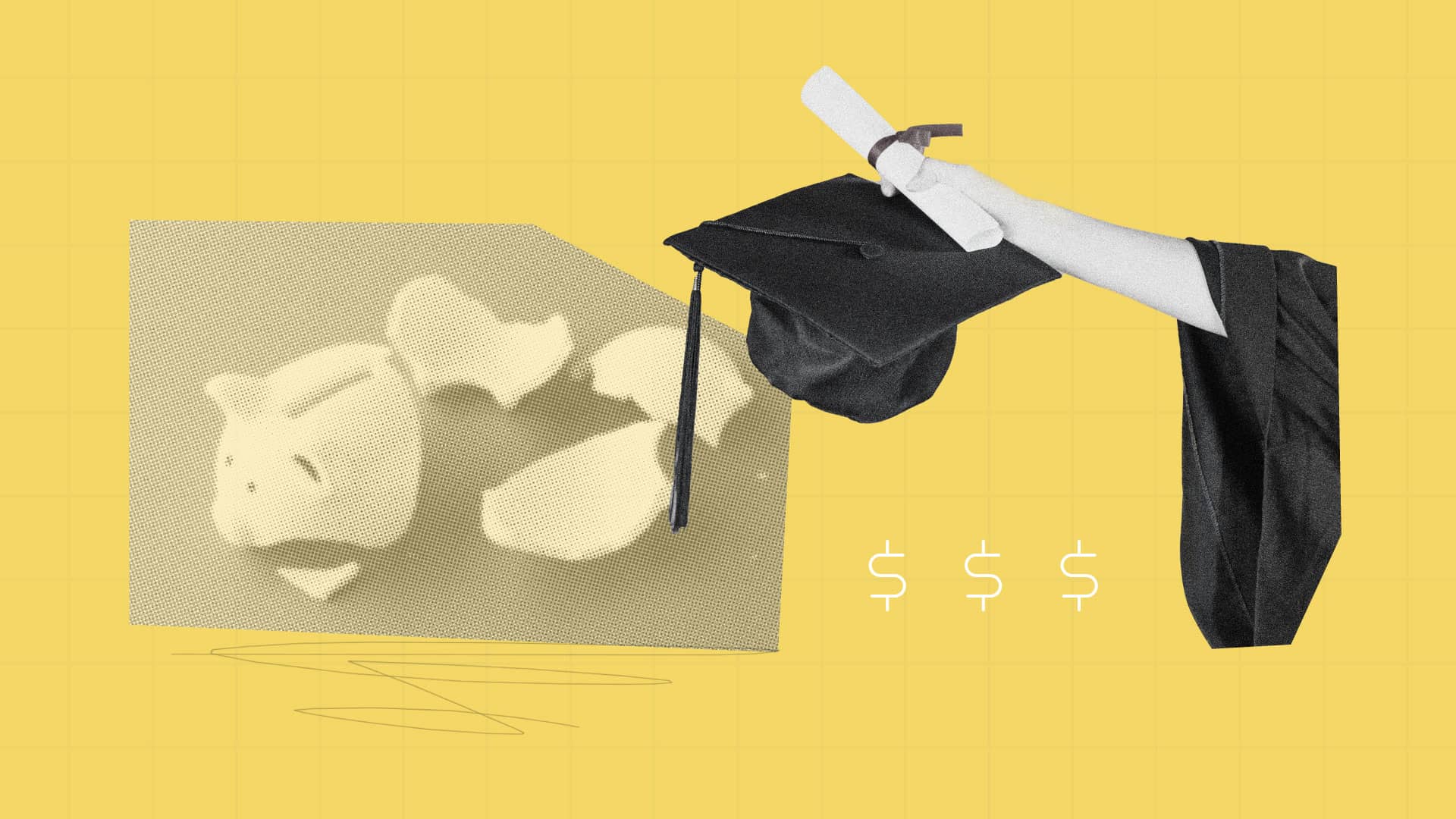Federal Student Loan Borrowers Reveal Grim Expectations for Payment Resumption

Key Takeaways
Roughly 7 in 10 federal borrowers in households that earn at least $100,000 annually said they expect to miss at least one payment and may default.
3 in 4 borrowers said they would need to reduce spending on nonessentials like entertainment in order to afford making their student loan payments again, while 2 in 3 said they would work extra hours to earn more or find additional work.
More than 4 in 5 borrowers expect some or all of their loans will be erased if the Supreme Court upholds the Biden administration's forgiveness plan.
We're continuing to track federal student loan borrowers' opinions on repayments. Check out our latest analysis here and sign up to get the latest economic news and analysis delivered to your inbox.
More than three years after a moratorium on student loan repayments was enacted by the federal government, borrowers are now staring down a rapidly approaching end to the pause.
New rules passed as part of the recent debt ceiling legislation dictate that the Biden administration cannot extend the pause again, and so payments are now certain to start either 60 days after June 30 or 60 days after the Supreme Court issues its ruling on the legality of the Biden administration’s plan to erase up to $20,000 in federal student loans for each borrower.
With the average U.S. household with student debt owing more than $58,000, the weeks ahead are highly consequential for the millions of borrowers facing repayments. A new Morning Consult survey finds that more than half of federal student loan borrowers — most of whom expect to get at least some relief under the Biden administration’s pandemic-era forgiveness plan if it’s upheld — expect to miss payments or default on their loans once monthly bills and interest restart.
More Than Half of Federal Student Loan Borrowers Expect to Miss Payment or Default When Pause Ends
The end of the pause may affect up to 43 million borrowers with more than $1 trillion in debt, and the Education Data Initiative estimates that 5% of all student loan debt is currently in default.
A Department of Education spokesperson told Morning Consult that the agency is proactively engaging with borrowers who are at a high risk of delinquency with “high-quality communications” from the Federal Student Aid, and taking steps to “combat scammers and fraudsters.”
Student loan defaults could hit across demographic groups as household debt swells
Morning Consult data shows that the end of the pause will affect Americans across income brackets: At least half of federal borrowers in both lower- and middle-income households said they expect to miss payments or default, while borrowers in households making more than $100,000 per year had even larger shares who said they expect to miss payments (73%) or default on their loans (69%).
In the survey, 50% of borrowers in higher-income households said they had at least $100,000 in student loans. By comparison, 10% of borrowers in households making $50,000 to $100,000 said they had at least $100,000 in debt, and 6% of those making less than $50,000 a year reported six figures of debt.
And for the respondents who had post-graduate degrees, 47% said they had at least $100,000 in debt. Federal student loans for graduate school carry an interest rate of 6.54%, compared with a rate of 4.99% for undergraduate education.
Gains made by borrowers during the pandemic, such as increased savings, have largely been erased. And for many borrowers, especially millennials, monthly finances are stretched thin between competing debt obligations as the cost of mortgages, auto loans and credit card debt rise.
A recent study published by University of Chicago researchers found that on average, borrowers who had their student loan payments paused not only increased their consumption, but ended up with more debt.
Constantine Yannelis, one of the paper’s authors and an associate professor of finance at the University of Chicago’s Booth School of Business, noted that the study design compared those with student loan payments paused to those with privately held Federal Family Education Loan borrowers who took out loans before 2010 (and were not subject to the payment pause). But Yannelis said in an interview that while it wasn’t surprising that borrowers who had payments paused didn’t save more, it was surprising that they took on more debt instead of paying down debt.
While classical economics theories dictate that consumers might try to “smooth out” their spending, saving and debt when given more liquidity, Yannelis said the actual behavior seen in the study is consistent with more modern ideas that a share of people behave in “a hand-to-mouth manner, effectively just spending whatever comes in.”
Higher-income households aren’t immune from this phenomenon. Yannelis posited that the group may be living in higher-cost areas, and he noted that many of those in the Morning Consult survey who expected to default on their loans or miss a payment may not qualify for income-based assistance programs, such as the Income-Driven Repayment plans, which set lower monthly payment amounts based on the borrowers’ current income.
Alí Bustamante, deputy director of the Roosevelt Institute’s Worker Power and Economic Security program, said applications to the Biden administration’s debt relief program confirmed that those who sought relief under the plan didn’t fit neatly into one box.
“It was people across the country,” he said. “It wasn't a trend that happened in some urban areas; it's something that happened nationwide. And so what we know is that there's going to be considerable ripple effects associated with the resumption of student loan payments.”
Bustamante noted that in recent years, the broader labor market has required higher educational credentials for many occupations, and barriers to education have been reduced, driving an increase in both college attendance and the types of programs sought.
That boon to education access has been a double-edged sword for communities of color: The Education Data Initiative found that among bachelor’s degree holders, 76.1% of Black students took out federal loans, more than any other race or ethnicity.
Marc Morial, president of the National Urban League, said that minority students and their families do not have the same levels of disposable income to pay tuition in the first place, so those graduates leave college with higher levels of debt — a situation compounded by the rising cost of tuition.
“Now we have people finishing college with debt exceeding three to four times their annual income,” he said. “It's the magnitude of the debt. And the magnitude of the debt on Black young people is more extreme.”
Assuming the Supreme Court upholds the Biden administration’s forgiveness program, 55% of federal borrowers in the Morning Consult survey said they expect all of their student loan balance to be forgiven, while another 32% believe some will be forgiven.
But if the high court strikes down the broader forgiveness plan, Bustamante said the administration will face “a huge pickle” in dealing with borrowers’ nonpayment. He noted that student debt is a unique type of debt that doesn't have the same conditions as most other private debt, and while there are forgiveness programs for those in public service, options like forbearance eventually expire and unpaid debt can lead to garnished wages.
As student debt repayment ripples through the economy, borrowers say they will nix nonessential spending, save less
With the average monthly student loan payment in the United States at about $390 — and fewer than half of Americans saying they have the cash to cover a $400 emergency expense — Bustamante expects the resumption of payments to have “a huge impact across the economy.”
When asked how they plan to cover student loan payments once they resume, a majority of federal borrowers in the Morning Consult survey indicated they would cut back on spending, put less money in savings and even look for additional work.
How Federal Borrowers Plan to Afford Student Loan Payments
The prospect of millions of borrowers resuming monthly payments — amid continuing inflation, rising interest rates and the threat of a recession — may have effects beyond the individual day-to-day struggles of finding the money to repay their loans. Both Morial and Bustamante noted that credit scores and financial goals like saving for a home are likely to take a hit — sentiments echoed by Sen. Elizabeth Warren (D-Mass.), who has pushed for broad loan forgiveness and measures to protect borrowers, in an emailed statement to Morning Consult.
“For years, the burden of student debt has held working- and middle-class people back from buying a home, from opening a business, and from starting a family,” she said, adding that she believes the Biden administration has the authority to cancel student debt, which would provide “life-changing relief.”
But as individual borrowers struggle with balancing their payment commitments, the broader student loan debate brings up questions of fairness: An August 2022 Morning Consult survey found that 48% of U.S. adults said the Biden administration’s forgiveness plan was fair, and 44% said it was unfair.
A GOP-led bill to repeal the student loan forgiveness program successfully passed the House and Senate earlier this month, and although it is guaranteed to be vetoed by the president, it gathered bipartisan support, driven in part by the idea that it was unfair to ask taxpayers at large to pay for borrowers’ education debt.
Maya MacGuineas, president of the Committee for a Responsible Federal Budget, said in a statement responding to the bill’s passage that Biden “should not be allowed to unilaterally add hundreds of billions of dollars to the debt,” adding that with high inflation, rising interest rates and near-record debt levels, the country “shouldn’t just throw hundreds of billions of dollars at every problem rather than doing the hard work to fix it.”
As the cost of attending college remains high, some students may be wising up to the long-term financial commitment they are making when financing an education; both the share of students taking out loans and the average size of student loan debt are trending downward.
Morial said he’s spoken with some students who are reconsidering college altogether “simply based on student debt,” while some graduates have questioned whether the cost of college was ultimately worth it.
“That's bad for the country,” he said. And if the “unequal debt burden” continues to sideline prospective students of color, then “it's going to impact the economy. This is about economic growth, and fairness together.”
Clarification: This story has been updated to reflect that the survey was conducted “among a representative sample of 6,613 U.S. adults, including 1,069 U.S. adults with federal student loan debt.”
Amanda Jacobson Snyder previously worked at Morning Consult as a data reporter covering finance.
Related content

Federal Student Loan Borrowers Who Haven't Yet Applied for Forgiveness: Confused About Eligibility, Unsure if Relief Will Come

Public Lays Blame for Student Debt Forgiveness Limbo on Conservative Judges, Republicans in Congress
